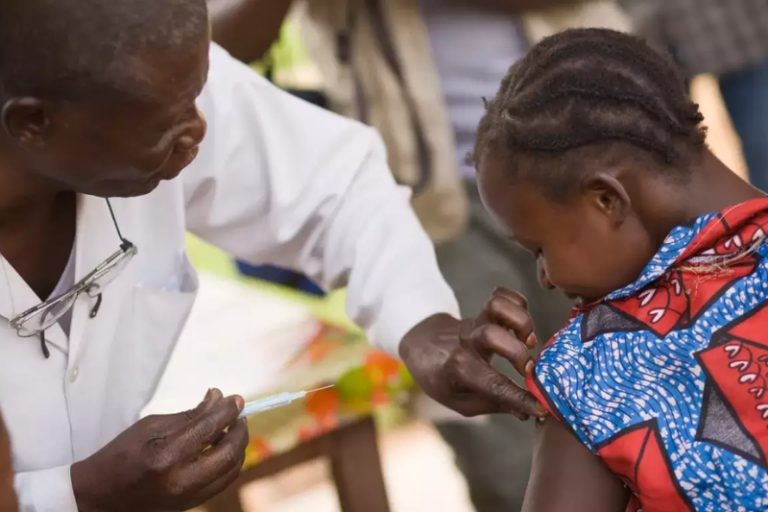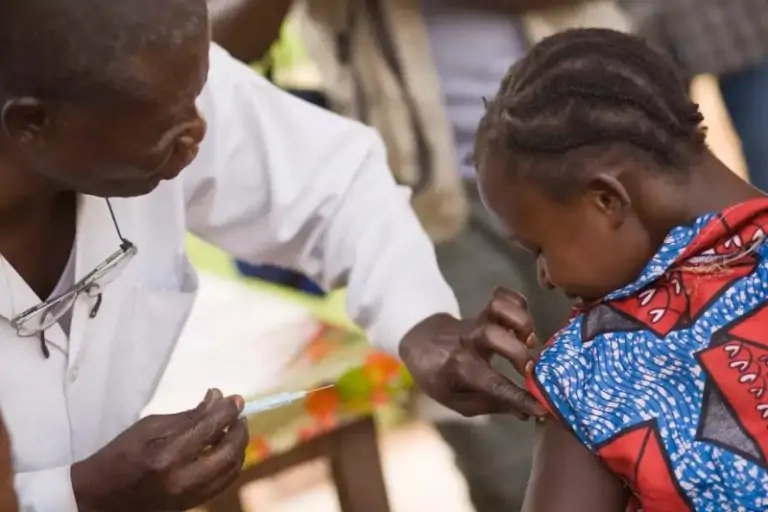

world leaders commit 1 2 billion for african vaccine production
To boost vaccination rates in Africa, world leaders, health groups, and pharmaceutical firms have committed $1.2 billion. Announcement of this important dedication came from the Global Forum for Vaccine Sovereignty and Innovation hosted in Paris on Thursday.
Particularly in Africa, which still suffers many health issues, the COVID-19 epidemic exposed extreme worldwide differences in vaccination access. Emphasizing the value of the African Vaccine Manufacturing Accelerator, French President Emmanuel Macron called it “an essential step towards a genuine African vaccine market.”
“African produces only two percent of the vaccines it uses, and the goal is to increase this production to sixty percent by 2040,” Macron said. This ambitious goal seeks to solve the continent’s reliance on outside vaccination supplies, which the epidemic has harshly highlighted.
The summit also discussed the spread of cholera in several African countries, emphasizing the pressing need of local vaccination manufacture. President Bassirou Diomaye Faye of Senegal underlined the wider effects of the epidemic on immunological campaigns and health institutions. “COVID-19 seriously damaged our health systems and drove vaccination campaigns to the side more than four years ago. According to UNICEF’s 2021 report, 23 million children missed vital immunizations required for their normal growth at the height of the epidemic,” he said.
Key meeting organizer, the Gavi vaccine alliance, declared its intention to fund its vaccination campaigns with $9 billion. Vaccines for more than 20 diseases are distributed to low-income nations mostly by Gavi. Over the next ten years, the alliance intends to provide up to $1 billion to increase Africa’s capacity for manufacturing vaccines, boost world vaccination markets, and raise pandemic and disease outbreak readiness.
Once African producers satisfy supply and regulatory criteria, Gavi’s initiative seeks to provide money to them. This strategy tries to use market forces to lower prices and boost upstream investment. The project will also look at important concerns such knowledge transfer, sometimes opposed by Western nations with powerful pharmaceutical companies, and the possible establishment of an African medicines agency to handle legal issues throughout the continent.
Apart from reacting to the present health emergencies, the dedication to boost vaccination rates in Africa is a calculated action to strengthen resistance against next pandemics. Africa can strengthen its health security and support worldwide initiatives in the control of infectious illnesses by encouraging indigenous production capacities.
Canadian companies have expanded their presence as major African mining stakeholders and invested more than $37 billion. Africa holds the…
The South African government wants people to plant one million trees across the nation within a single day on September…
The government's statistics regulator showed that South African inflation stayed at 3.2% during February and rose below the projected 3.3%.…
Keywords: Cape Town, African Energy Chamber, Africa, The 2025 African Energy Week (AEW) will host the top energy leaders from…
Recent research shows that Professor Abdessamad Faik believes Africa is at an important energy choice point as renewable-powered hydrogen allows…
The United States plans to shut down its Johannesburg consulate after Sandton Drive gets renamed to Leila Khaled Drive even…
This website uses cookies.